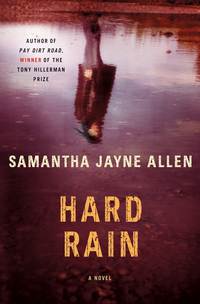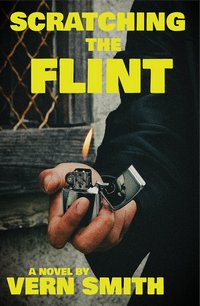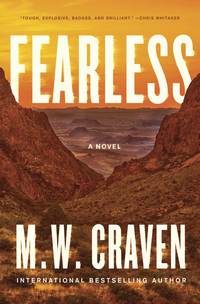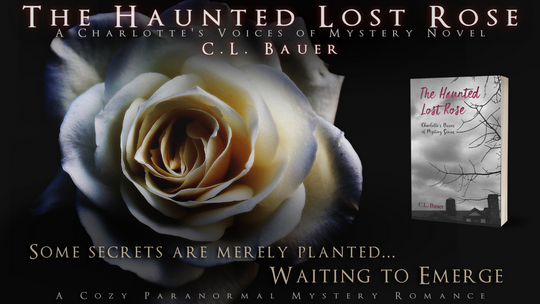This is a post I’d hoped to get up the first week of February, making it…very late. But here we go…
As always, I want to say that the point of these quick takes posts is to catch up on my “To Write About” stack—emphasizing pithiness, not thoroughness.
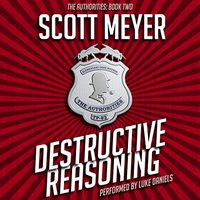 Destructive Reasoning
Destructive Reasoning
by Scott Meyer, Luke Daniels (Narrator)
DETAILS: Series: The Authorities, #2 Publication Date: November 16, 2022 Format: Unabridged Audiobook Length: 9 hrs., 21 min. Read Date: January 5-10, 2023
(the official blurb)
This sequel starts off with a sequence as silly, but slightly less cringe-worthy, as the first book before shifting to the major storyline. This one takes the team to Los Angeles to investigate a series of killings. The common thread amongst the victims is that they were playing a version of Dr. John Watson in a movie/TV series.
Not only have there been some killings, but there are three actors in the area who are currently playing Watson (or a Watson-figure), and the team has to investigate and keep them alive.
We get some mocking of the Entertainment Industry, general silliness when it comes to the team, and even a little more backstory on a couple of characters.
Overall, I didn’t like this quite as much, it felt like Meyer was trying too hard to be funny rather than tell a story in his signature way. Still, it was enjoyable enough to finish and want to see more.
Luke Daniels did his typical bang-up job. Ending the audiobook with bloopers was a fun bonus.

![]()
 Ms. Demeanor
Ms. Demeanor
by Elinor Lipman, Piper Goodeve (Narrator)
DETAILS: Publisher: HarperAudio Publication Date: December 27, 2022 Format: Unabridged Audiobook Length: 7 hrs., 27 min. Read Date: January 17-18, 2023
(the official blurb)
I saw this a few times on my Libby app and decided I wasn’t that interested as cute as it sounded, but at some point, I saw a cover blurb from Richard Russo. So, why not?
Jane Morgan is under house arrest and newly unemployed thanks due to a minor crime, a nosy neighbor, and a judge wanting to make an example of her. She’s forced to try to do things to help the time bearable—including making the acquaintance of someone else in her building also under house arrest.
There’s some romantic comedy here, some self-discovery, and just some warm-hearted fun. It’s not fantastic, but it’s a good way to spend some time. It’ll keep you engaged and entertained.

![]()
 The Wizard’s Butler
The Wizard’s Butler
by Nathan Lowell, Tom Taylorson (Narrator)
DETAILS: Series: The Wizard's Butler, #1 Publisher: Podium Audio Publication Date: April 20, 2021 Format: Unabridged Audiobook Length: 12 hrs., 10 min. Read Date: January 25-27, 2023
(the official blurb)
I feel like I should have a lot to say about this one, but I don’t (which kind of bugs me). It’s the story of a man being hired to be a butler/caretaker of an older man for a year. After that year, the unscrupulous relatives that hired him will pay Roger a disgusting amount of money and will ship Joseph Perry Shackleford off to a retirement home and take control of his money and property.
What is going to make this easier is that Mr. Shackleford forward thinks he’s a wizard. Roger could use the money and likes Mr. Shackleford, so he doesn’t care what the old man thinks he is. Roger wants to help him—and he’s pretty sure that his new bosses are up to no good, maybe he can cause them some trouble.
It turns out, however, that the old man actually is a wizard. Roger gets introduced to a world he couldn’t have imagined was real if he tried.
This book was charming as all get out. I really enjoyed the story, the world, the magic system, the characters (I really enjoyed the characters), and the way that Lowell put this together—Taylorson’s narration was effective and engaging, too.
This is the slowest-paced Urban Fantasy I’ve ever read—with stakes that are so far smaller than we’re used to, which doesn’t stop it from being something that holds your attention. It could probably be safely described as Cozy UF—Fred, the Vampire Accountant books have more violence, and it’s typically tame 90% of the time. And I’m more than ready for more of this kind of story.

![]()
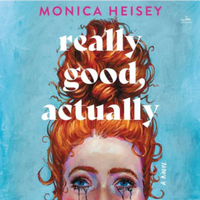 Really Good, Actually
Really Good, Actually
by Monica Heisey, Julia Whelan (Narrator)
DETAILS: Publisher: HarperAudio Publication Date: January 17,2023 Format: Unabridged Audiobook Length: 10 hrs., 13 min. Read Date: January 20-25, 2023
(the official blurb)
This is a look at the ups and downs—and further downs, and deeper downs–of a young woman in the year after her divorce. It’s about grieving her relationship, friendship, dating (we’ll be generous/prudish and call it that), and accepting yourself–and accepting help.
I thought the prose and inventiveness in certain scenes were spot-on. There’s a lot of cleverness displayed throughout. But while there are some great moments, but I just didn’t think the journey was worth the destination—and I’m not that crazy about the journey, either.
It’s an utterly fine book.

![]()
 How to Astronaut:
How to Astronaut:
An Insider’s Guide to
Leaving Planet Earth
by Terry Virts
DETAILS: Publisher: Workman Publishing Company Publication Date: July 15, 2022 Format: Unabridged Audiobook Length: 11 hrs., 23 min. Read Date: January 27-31, 2023
(the official blurb)
This is exactly what you want in an astronaut memoir—he talks about his interest in the program and why he wanted to become an astronaut, his training–both for the Space Shuttle and ISS—actual service on both—(obviously spending more time on the ISS because he spent more time on it and there was more to talk about), as well as what it’s like after returning to Earth. It’s not glowing about NASA or any space program—he’s frank and honest about problems, his own errors, and difficulties as well as what a fantastic opportunity it was for him.
He’s witty, thoughtful, and reflective throughout (in both the writing and his audio narration). I thoroughly enjoyed it and can see myself returning to this one in the future.

This post contains affiliate links. If you purchase from any of them, I will get a small commission at no additional cost to you. As always, my opinions are my own.
![]()


